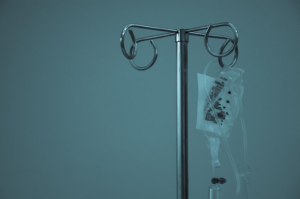Are Women in Ireland More Likely to be Misdiagnosed Than Men?
In this article, we’ll be exploring whether there is an apparent ‘gender health gap’ in Ireland…
In Ireland, new studies into women’s healthcare have found a medical bias, with women being medically misdiagnosed more than their male counterpart. There are a number of reasons that can account for this gender health gap, including women feeling like they’re not being listened to or taken seriously when they speak to their GPs and consultants.
There is also increasing scientific evidence to suggest that men and women’s bodies differ on a cellular level upwards, and should therefore receive different care and treatment. Despite these revelations, a blanket approach is still being applied when treating men and women.
Researchers believe that these reasons continue to account for women’s misdiagnoses, unsatisfactory care, and cases of medical negligence in Ireland. To find out more about the gender health gap in Ireland, keep reading…
Women’s Biology
To firstly understand some of the reasons why there is a gender health gap, it is important to take look at the medical research on women’s bodies.
Dr Alyson McGregor from Brown University found that men and women’s bodies differ from a cellular level upwards. These differences influence every bodily function in men and women, meaning diseases and illnesses will likely affect the two sexes differently. Despite this information, a blanket approach is still being applied when treating men and women.
A major example of this is the “heart attack gender gap” whereby women are 50% more likely than a man to receive an initial wrong diagnosis for a heart attack. More shockingly, even after a correct diagnosis, they’re significantly less likely to receive life-saving treatments.
One reason behind this could be that women’s symptoms don’t always fit previous male-centric models. For example, in men, plaque tends to build up, causing blood vessels to rupture. However, in women, plaque is more likely to gradually erode, making blood vessels stiffer and less flexible over time.
Historically, medical research has excluded women of childbearing age from taking part in trials. The reason behind this was to supposedly protect them, however, others argue that this exclusion meant healthcare professionals and the pharmaceutical industry could work faster and cheaper. This was due to the fact they didn’t have to factor in variables such as menstrual cycles and hormone surges.
Some could argue that, as a result of this sidestepping, there is a lack of targeted treatment and knowledge on women’s health.
Medical Gaslighting
A recent study into women’s healthcare in Ireland has found that a number of women feel they are not being listened to or taken seriously enough when they speak to healthcare professionals about sexual and reproductive issues. Fianna Fáil Senator, Lisa Chambers, who conducted the study, said the over-arching response from 3,000 women surveyed about their experiences is that women’s health concerns are consistently blamed on emotion, age, hormones, and even their imaginations.
Ms Chambers has said that “in some cases, women were prescribed medication for mental health issues and told their physical symptoms were psychological and the result of anxiety or depression”. She said the disturbing trend is “medical gaslighting at its worst” and is leading to “delayed and missed diagnosis and in some cases no treatment at all”.
On top of this, there has been a reported rise in the number of medical negligence claims against gynaecologists in Ireland. Leo Varadkar, the former Minister for Health, said that 117 claims in 2010 rose to 130 in 2014.
Misdiagnosis
The statistics from the study mentioned above fall into line with findings of a gender bias in medical diagnosis. This bias has been found in a number of UK and international studies.
One of the most prominent and recent studies was conducted by the digital healthcare app, Livi, which surveyed 2,000 women across England, Wales, Northern Ireland and Scotland. They found that 57% of those women feel they have been medically misdiagnosed due to their sex. On top of this, 29% of these women still don’t think they’ve received the correct diagnosis.
The research also showed that many women are enduring long waiting times to receive the correct diagnosis, with 23% of women reporting waiting anywhere between a year and 11 years for one.
Is there a Medical Bias in Women’s Health?
What is clear from this article is that the medical industry still has a long way to go in recognising the need for different healthcare practices and targeted treatments amongst men and women.
Recent studies conducted in both Ireland, and on a global level, have found that women are being misdiagnosed more than their male counterpart. On top of this, a number of women also feel they’re not being taken seriously enough by healthcare professionals.
If you or a loved one has ever felt that a healthcare professional has failed in their duty of care to you, or made mistakes, then it is important to speak to a lawyer as you may be eligible to make a claim.
Please be advised that this article is for general informational purposes only, and should not be used as a substitute for advice from a trained medical or legal professional. Be sure to consult a medical professional or healthcare provider if you’re seeking medical advice, diagnoses, or treatment. And, be sure to consult a lawyer/solicitor if you’re seeking advice on the law. We are not liable for risks or issues associated with using or acting upon the information on this site.




No Comments